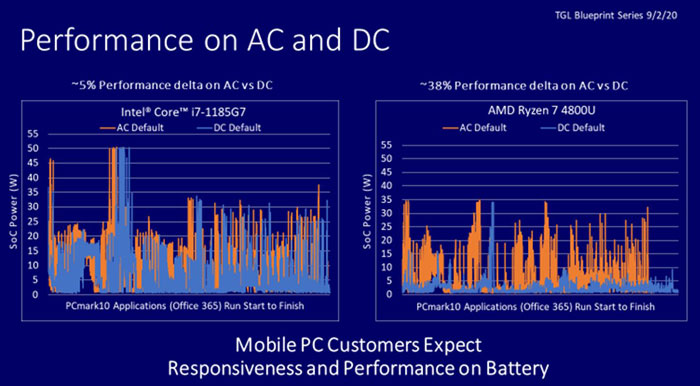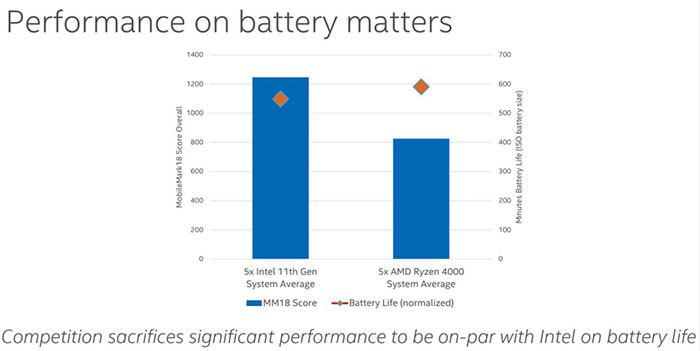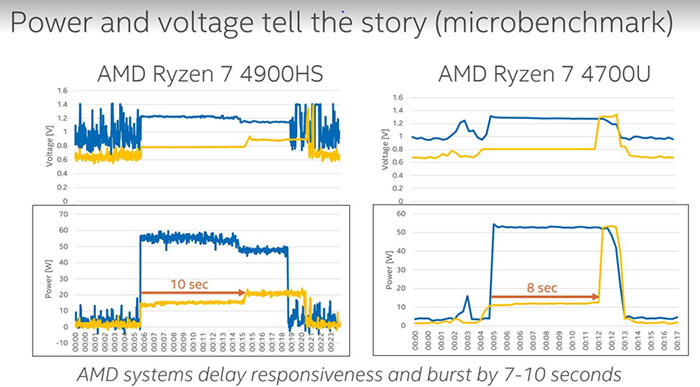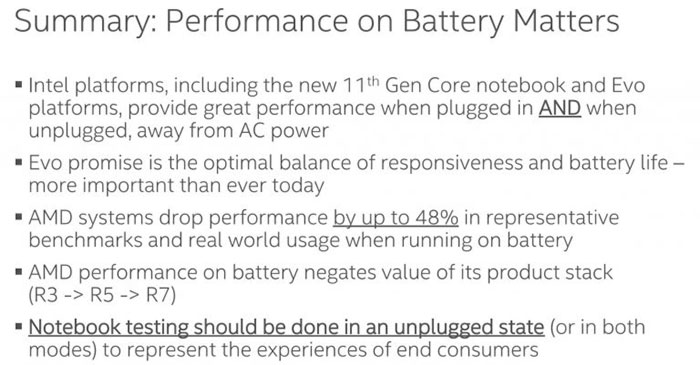On Friday Intel held a closed doors presentation to a selection of analysts and journalists. The purpose of the presentation it seems was to convince the assembled that Intel laptops were superior to AMD-powered alternative as they perform considerably better when unplugged from the wall. In other words, AMD is basically accused of running its processors at full tilt when on mains but drastically reducing performance on battery to achieve great battery life results.

Cutting though the smoke, Intel's presentation was assessed and was found wanting by veteran tech journalist Joel Hruska of Extreme Tech (and PCMag and Ars Technica). Hruska's article takes Intel's assertions about AMD mobile CPUs and he turns the presentation findings around to accuse Intel of spreading FUD about supposedly huge Ryzen 4000 performance drops on battery. He backed up his rejection of Intel's findings, which were already suspect, with some tests of his own – obviously not cherry-picking for Intel's benefit.

Intel's presentation slides are very interesting to pore over and surface quite a number of comparisons where its own processors do indeed look like the better choice for mobile computing. However, the doubts start when Intel's choice of competitor laptops are dominated by a single vendor. Four out of five of the AMD laptops tested were from Lenovo, and one from HP. The Intel-powered laptops chosen came from a much wider range of manufacturers.

One of Intel's central assertions was that AMD laptops on battery power wait for as long as 7-10 seconds before engaging turbo mode, while Intel systems engage turbo mode more quickly. This means that AMD systems won't be as responsive on battery, says Intel. However, this behaviour is something that AMD OEM partners have direct control of. Other cracks in the Intel presentation became apparent when it started discussing the characteristics of the Ryzen 4900HS when that wasn't even installed in any of the AMD laptops used to measure average system performance. Moreover, Intel chose an outlier PC Mark AC/battery comparison result as the basis for its conclusion that AMD systems dropped 38 per cent performance when unplugged (comapred to a 5 per cent drop for Intel systems).

Intel's conclusions
Hruska's own quick tests on an admittedly limited range of laptops gave him the confidence to assert that "what Intel has claimed to have demonstrated is grossly disproportional to what it has actually demonstrated, even if its claims are viewed in the most positive light possible." Those are harsh words from the veteran tech journo but they should be a warning to Intel not to indulge in these kinds of presentations which will be seen through by the tech press, the industry, and many end users. Companies are naturally inclined to try and show their products in the best light but go too far and you will lose trust and burn through years of goodwill very quickly.
All slides reproduced above are from the Intel presentation, not from the alternative tests undertaken by Extreme Tech.













